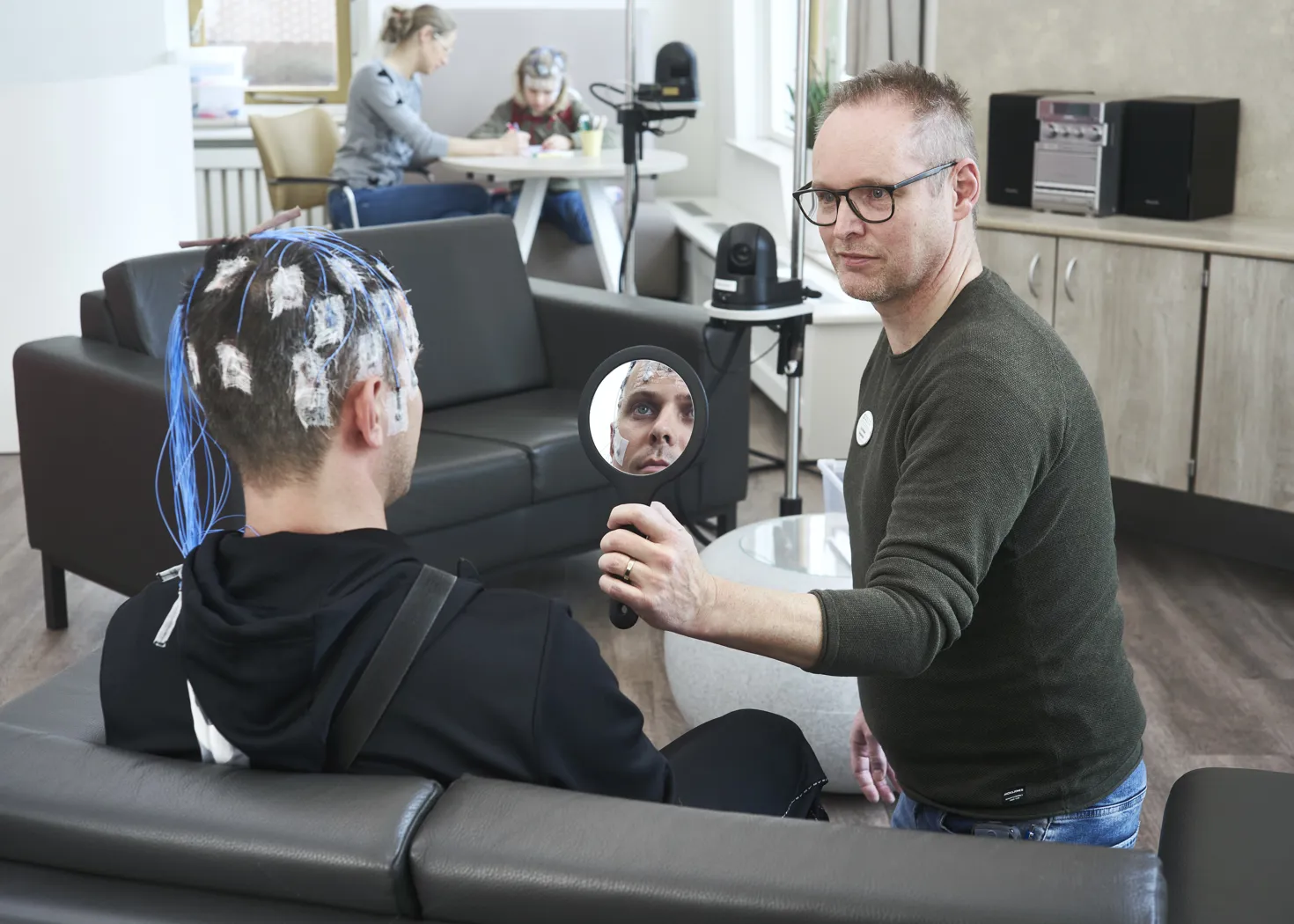This website places cookies. We do this to analyze the use of the website and to improve it. Please indicate your preference.
Investigating your epilepsy
If you have epileptic seizures, the neurologist will investigate what is causing them. They will listen to your history, perform a number of tests and examinations, and examine a scan of one of your seizures. You will discuss the outcome of the tests with the neurologist. This is how we find out the best way we can help you.
- Neurological examination
- Long-term EEG with video recording
- Psychological examination
- Investigation of learning and behavioural problems
- Standard EEG
- Tilt table test
- 24-36-hour paediatric diagnostic programme




